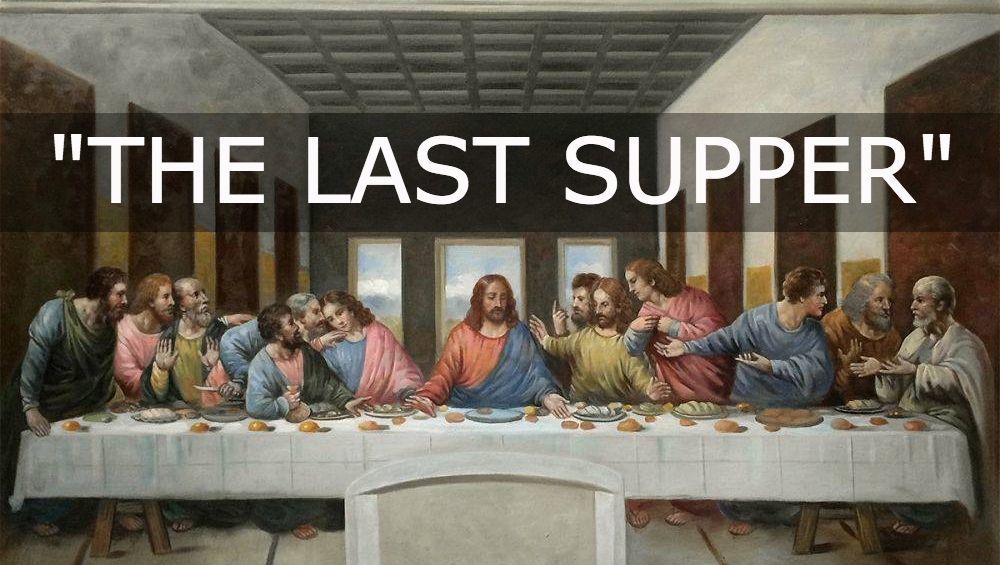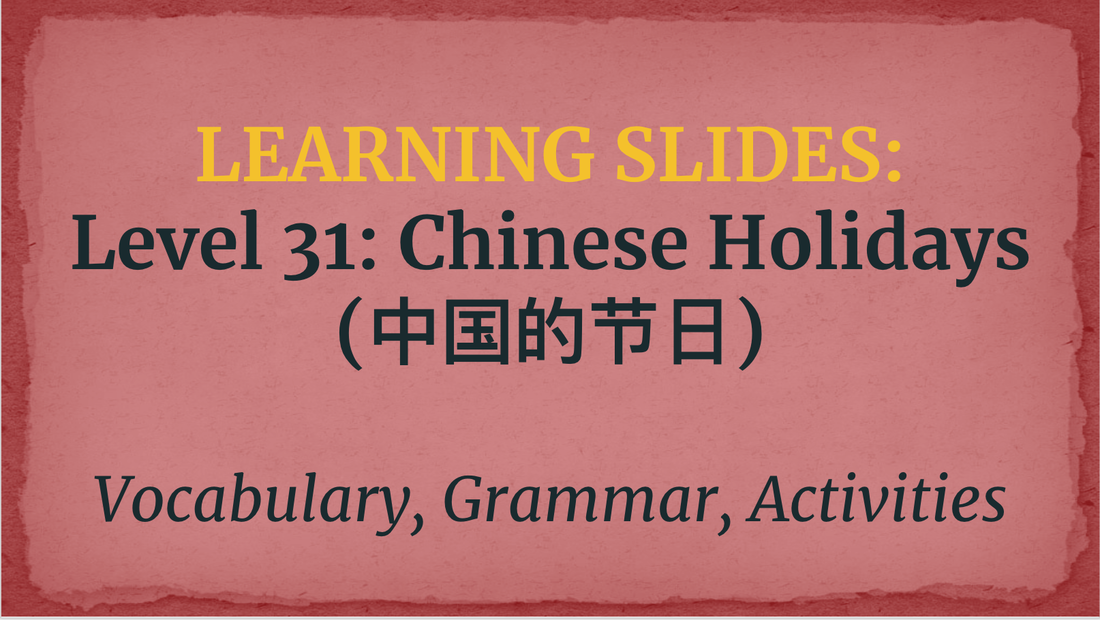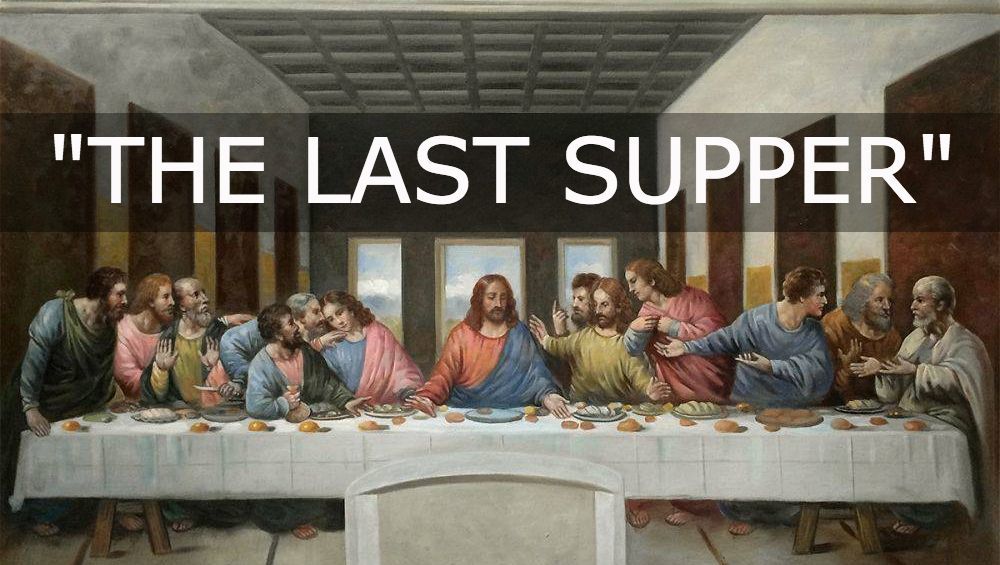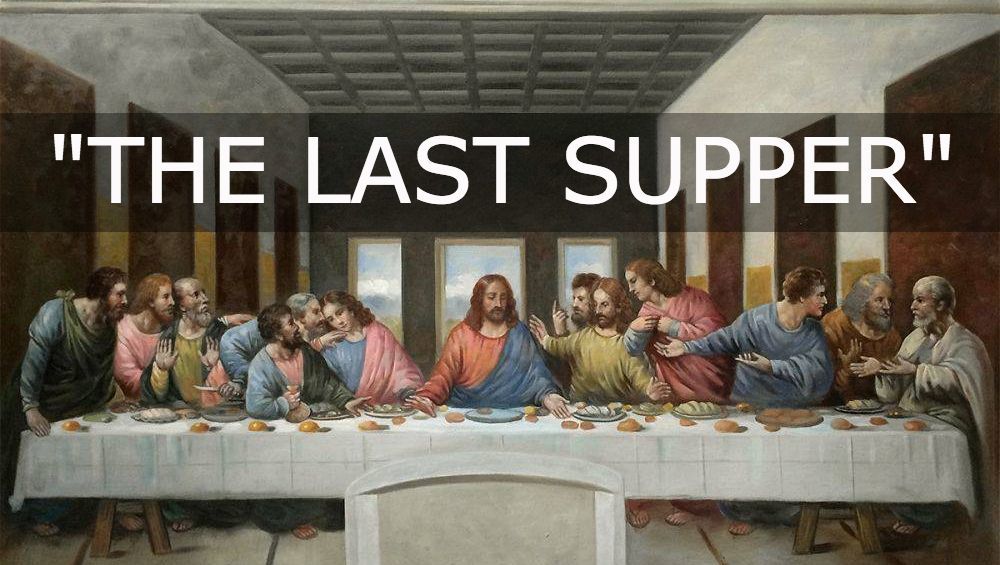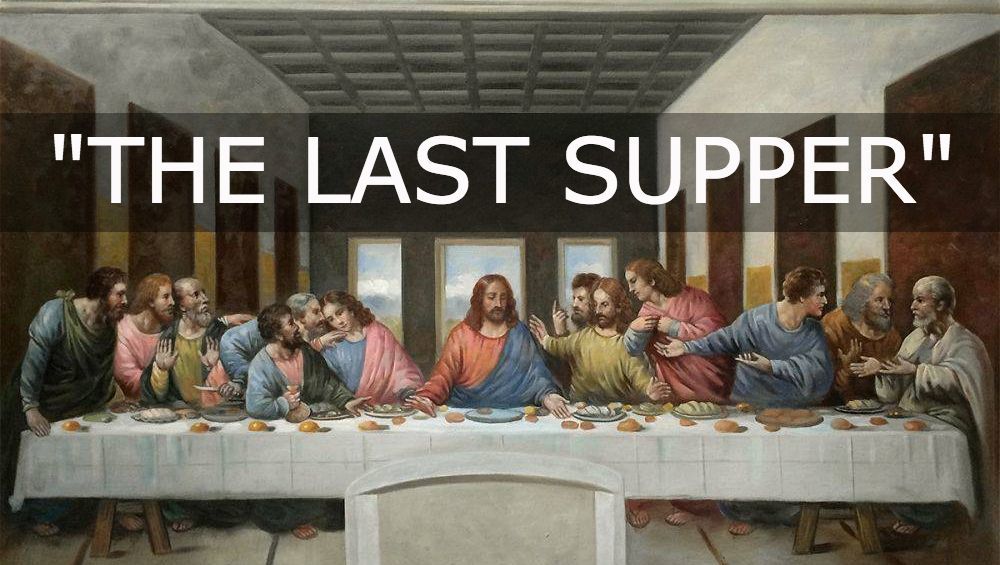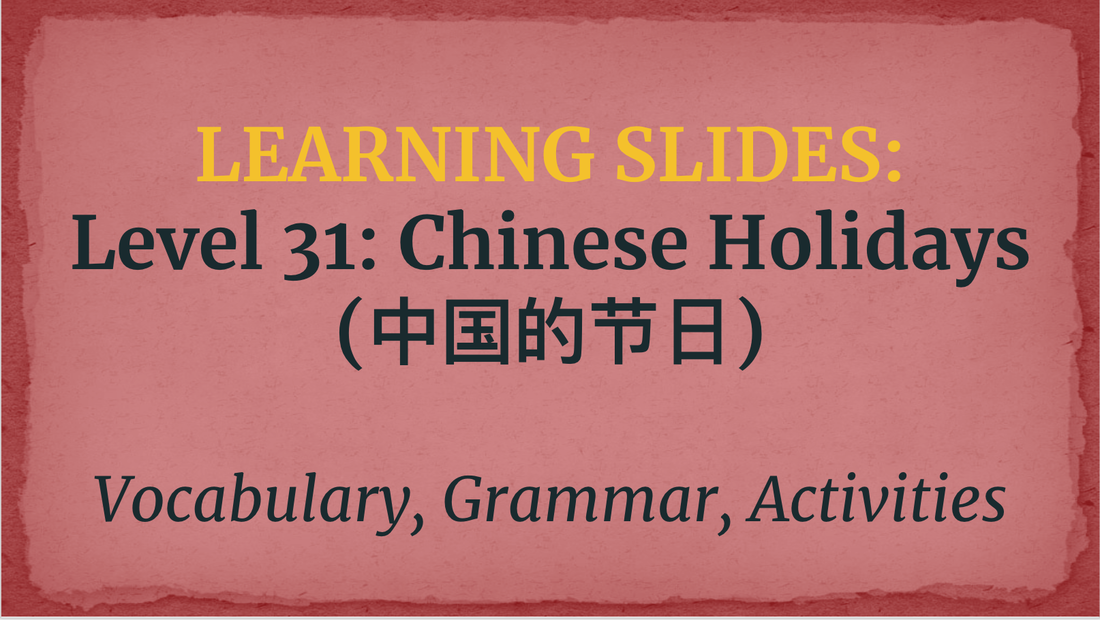Chapter 1: "Paradise Lost"
HOW TO MOVE ON IN LIFE
Preview
Lesson
Practice
Mastery
Preview
|
|
奇怪 (qí guài) strange [adj]
继续 (jì xù) to continue; to proceed with; to go on with
酒 (jiǔ) wine; liquor; spirits; alcoholic beverage
节日 (jié rì) holiday; festival
|
Lesson
Practice
SPEAK: brainstorm ideas for a "fun funeral," where people celebrate life instead of mourn death.
WRITE: write an eulogy for your best friend Mao Mao.
WRITE: write an eulogy for your best friend Mao Mao.
Mastery
DICTATION: write the Chinese characters, English definition, and pinyin (including tones):
READING: read aloud the following sentences:
SPEAKING: perform the following conversation tasks:
- 奇怪,继续,酒,节日
- TARGET: no more than 1 mistake, including tones.
READING: read aloud the following sentences:
- 柯林:奇怪,雪梅,这个"福"字怎么贴错了...
- 柯林决定到北京继续学中文,而林雪梅想在北京实习和找工作。
- 大家都不喝酒。
- 哎,中国还有好几个节日,吃的东西都不一样,对吧?
- TARGET: no more than 1 mistake, including tones.
SPEAKING: perform the following conversation tasks:
- Talk about holidays and celebrations.
- Talk about moving on or continuing with life after a painful event.
- TARGET: at least a 3 on ALL tasks.
Chapter 2: "The Nativity Scene"
HOW TO TALK ABOUT MAJOR AMERICAN HOLIDAYS
Preview
Lesson
Practice
Mastery
Preview
|
|
过节 (guò jié) to celebrate a holiday
传统 (chuán tǒng) tradition [noun]; traditional [adj]
感恩节 (gǎn ēn jié) Thanksgiving Day [~11月24日]
圣诞节 (shèng dàn jié) Christmas [12月25日]
*BONUS WORDS:* *元旦节* (yuán dàn jié) New Year's Day (Western Calendar) [1月1日] *万圣节* (wàn shèng jié) Halloween [10月31日] |
Lesson
Practice
SPEAK: discuss your favorite and least favorite American holidays. Give reasons for your choices.
WRITE: write a letter to your Chinese pen pal, introducing him/her to the major American holidays.
WRITE: write a letter to your Chinese pen pal, introducing him/her to the major American holidays.
Mastery
DICTATION: write the Chinese characters, English definition, and pinyin (including tones):
READING: read aloud the following sentences:
SPEAKING: perform the following conversation tasks:
- 过节,传统,感恩节,圣诞节,*元旦节*,*万圣节*
- TARGET: no more than 1 mistake, including tones.
READING: read aloud the following sentences:
- 哎,中国还有好几个传统节日,吃的东西都不一样,对吧?
- 美国的感恩节是重要的节日。
- 在美国,过圣诞节的人很多,所以学校都会放假的。
- TARGET: no more than 1 mistake, including tones.
SPEAKING: perform the following conversation tasks:
- Talk about major American holidays.
- Talk and holiday traditions.
- TARGET: at least a 3 on ALL tasks.
Chapter 3: "Ark of the Covenant"
HOW TO USE THE TRADITIONAL CHINESE CALENDAR
Preview
Lesson
Practice
Mastery
Preview
|
|
农历 (nóng lì) lunar calendar
正月 (zhèng yuè) the first month of the lunar calendar
初 (chū) beginning
计时 (jì shí) to count time; to measure time
|
Lesson
Practice
LEARN MORE: go online and find more information about the traditional Chinese calendar. Write a paragraph summarizing your findings, comparing and contrasting the traditional calendar with the modern Western calendar.
SPEAK: discuss the traditional Chinese lunar calendar. Does it feel strange for you to use? Why or why not?
WRITE: write a letter to your Chinese pen pal, asking him/her to help you understand the lunar calendar. Use specific examples/dates.
SPEAK: discuss the traditional Chinese lunar calendar. Does it feel strange for you to use? Why or why not?
WRITE: write a letter to your Chinese pen pal, asking him/her to help you understand the lunar calendar. Use specific examples/dates.
Mastery
DICTATION: write the Chinese characters, English definition, and pinyin (including tones):
READING: read aloud the following sentences:
SPEAKING: perform the following conversation tasks:
- 农历,正月,初,计时
- TARGET: no more than 1 mistake, including tones.
READING: read aloud the following sentences:
- 农历五月初五···
- 还有正月十五···
- 你们看,电视机里在计时了。
- 奇怪,雪梅,这个字怎么写错了。
- TARGET: no more than 1 mistake, including tones.
SPEAKING: perform the following conversation tasks:
- Compare the traditional Chinese lunar calendar and the Gregorian calendar.
- TARGET: at least a 3 on ALL tasks.
Chapter 4: "Through a Glass, Darkly"
HOW TO TALK ABOUT MAJOR CHINESE HOLIDAYS
Preview
Lesson
Practice
Mastery
Preview
|
|
清明节 (qīng míng jié) Tomb Sweeping Day [~4月5日]
端午节 (duān wǔ jié) Dragon Boat Festival [农历五月初五] 中秋节 (zhōng qiū jié) Mid-Autumn Festival [农历八月十五] 重阳节 (chóng yáng jié) Double Ninth Festival [农历九月初九] *China has “Eight Great Festivals” (中国八大传统节日). Here are the other festivals (*BONUS WORDS*): *七夕节* (qī xī jié) Qixi Festival [农历七月初七] *冬至节* (dōng zhì jié) Winter Solstice [12月21~23日] More Info on the 8 Traditional Chinese Holidays:
Sentences:
|
Lesson
Practice
SPEAK: discuss major Chinese traditional holdays. What do you know about these holidays? Have you ever celebrated them? When do they occur?
WRITE: write one paragraph introducing the following holidays: 清明节,端午节,中秋节,and 重阳节.
WRITE: write one paragraph introducing the following holidays: 清明节,端午节,中秋节,and 重阳节.
Mastery
DICTATION: write the Chinese characters, English definition, and pinyin (including tones):
GRAMMAR: complete the following exercises:
READING: read aloud the following sentences:
SPEAKING: perform the following conversation tasks:
- 清明节,端午节,中秋节,重阳节,*七夕节*,*冬至节*
- TARGET: no more than 1 mistake, including tones.
GRAMMAR: complete the following exercises:
- Culture: Identify the correct dates in the traditional Chinese calendar for at least four Chinese holidays.
- TARGET: no mistakes.
READING: read aloud the following sentences:
- 农历五月初五端午节···
- 中秋节有点像美国的感恩节。
- 清明节和重阳节是中国传统节日。
- TARGET: no more than 1 mistake, including tones.
SPEAKING: perform the following conversation tasks:
- Describe the dates of the major traditional Chinese holidays.
- TARGET: at least a 3 on ALL tasks.
MINIBOSS #1: ACT 1 REVIEWMastery Challenge 1 (Vocabulary and Grammar):
Mastery Challenge 2 (Speaking):
BONUS CHALLENGES:
|
© 2019 Hugo Xiong. [email protected]
